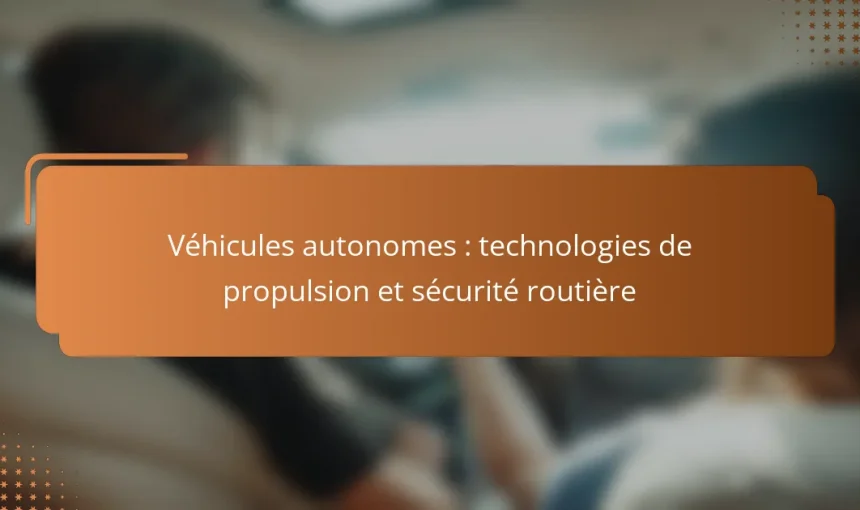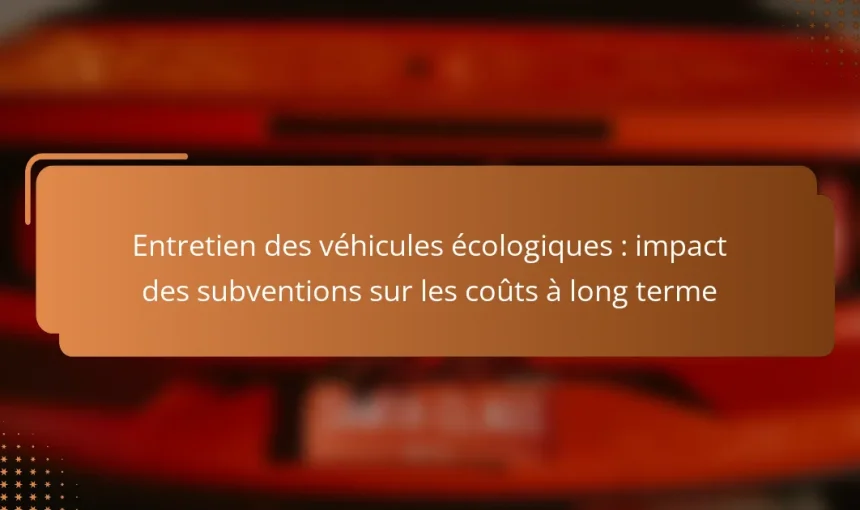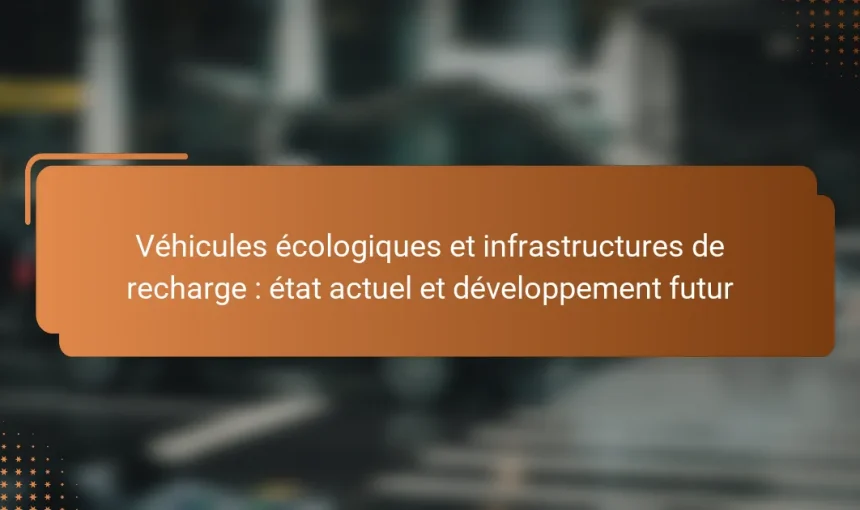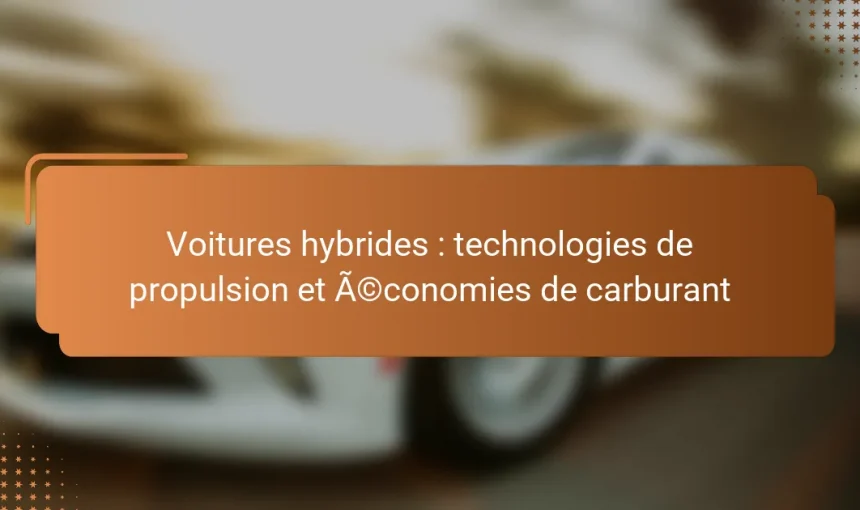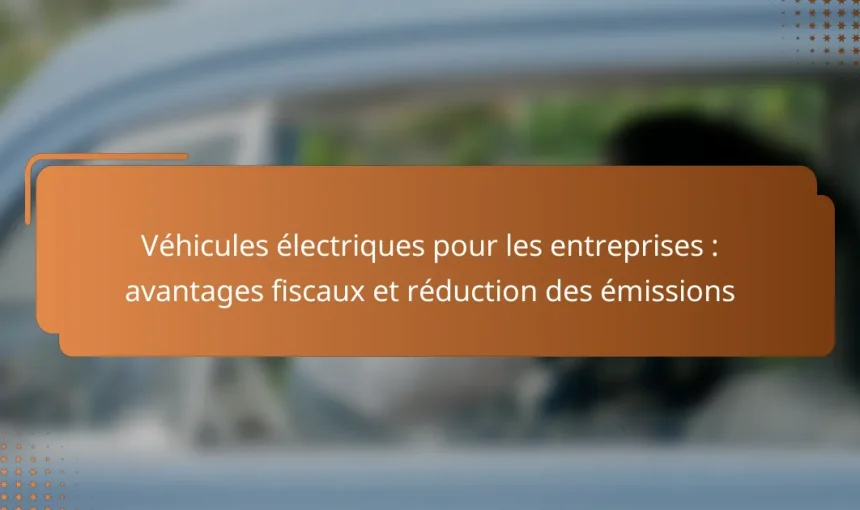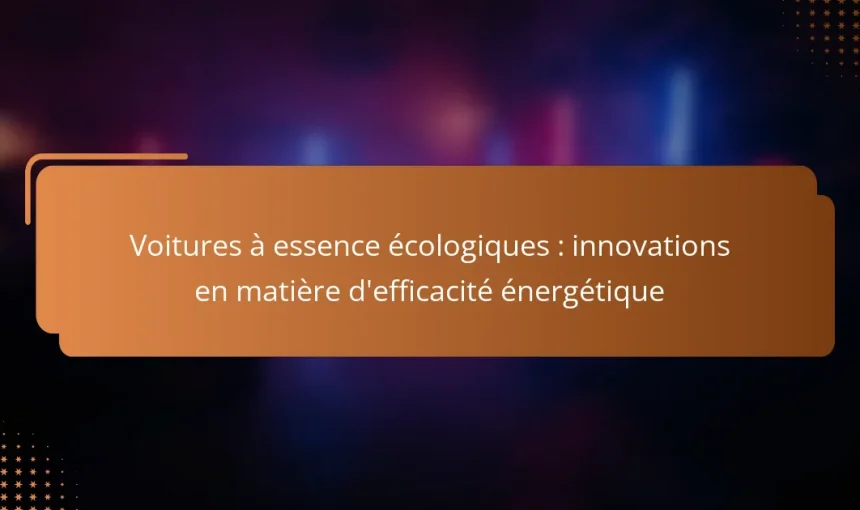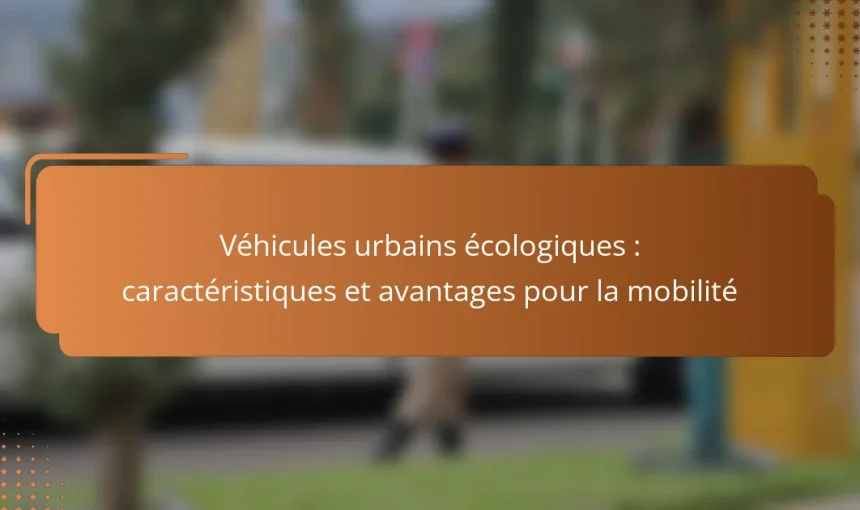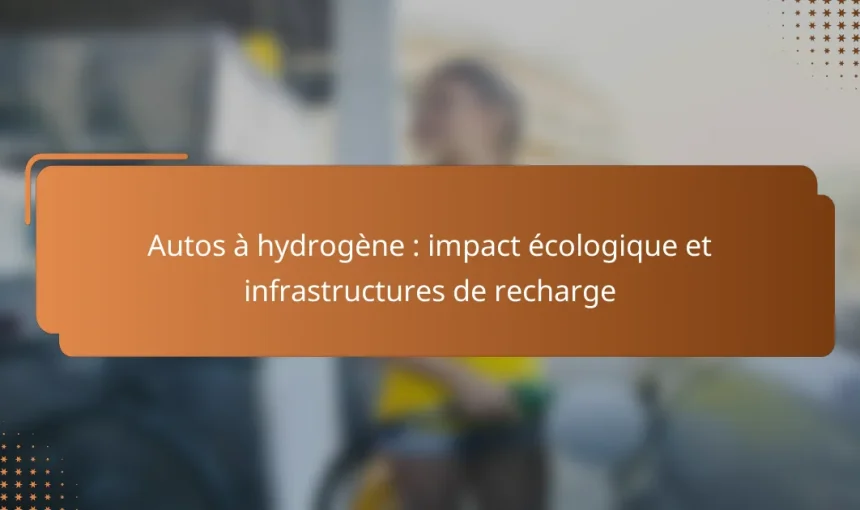A plug-in hybrid vehicle combines an internal combustion engine with an electric motor, allowing for recharging via an electrical outlet and enabling a certain distance to be traveled in fully electric mode. These vehicles generally offer greater autonomy than traditional hybrids and can reduce CO2 emissions by 30% to 50% compared to conventional gasoline cars. […]
Autonomous vehicles are designed to operate without human intervention, utilizing advanced sensors, cameras, and algorithms to navigate their environment safely. These vehicles can significantly enhance road safety, with studies indicating they could potentially reduce traffic accidents by up to 90% due to their reliance on artificial intelligence and real-time data processing. The article examines the […]
The article focuses on the maintenance of ecological vehicles, specifically electric, hybrid, and hydrogen cars, and how subsidies impact long-term costs. It highlights that these vehicles significantly reduce greenhouse gas emissions and dependency on fossil fuels, with electric cars potentially cutting CO2 emissions by 50 to 70% compared to gasoline vehicles. The discussion includes how […]
Ecological vehicles, including electric, hybrid, and hydrogen cars, are designed to reduce greenhouse gas emissions and play a crucial role in combating climate change. The global adoption of electric vehicles reached 10% of total sales in 2021, highlighting a significant shift towards sustainable transportation. Essential to this transition are charging infrastructures, which encompass both public […]
Hybrid cars are vehicles that integrate an internal combustion engine with an electric motor, resulting in reduced fuel consumption and lower CO2 emissions. This technology allows hybrid cars to operate using both power sources either simultaneously or alternately, enhancing energy efficiency by 20 to 35% as reported by the U.S. Environmental Protection Agency. Furthermore, hybrid […]
Electric vehicles for businesses encompass models such as cars, vans, and trucks, specifically designed to minimize carbon emissions. These vehicles typically feature batteries that provide adequate range for professional use, with brands like Renault, Nissan, and Tesla offering tailored options. The Renault Zoe is noted for its compactness and energy efficiency, while the Nissan e-NV200 […]
Quels sont les véhicules écologiques français ? Les véhicules écologiques français incluent principalement les voitures électriques, hybrides et à hydrogène. Les marques comme Renault, Peugeot et Citroën proposent des modèles respectueux de l’environnement. Par exemple, la Renault Zoé est une voiture électrique populaire en France. Elle offre une autonomie de 395 km selon le cycle […]
Eco-friendly gasoline vehicles are designed to operate with internal combustion engines fueled by gasoline while incorporating technologies aimed at minimizing environmental impact. These vehicles enhance fuel efficiency and reduce greenhouse gas emissions through innovations such as energy recovery systems, more efficient engines, and advanced emission control technologies. Recent advancements have focused on lightweight materials and […]
Véhicules urbains écologiques are designed to minimize environmental impact in urban areas by utilizing clean technologies such as electric and hydrogen power. These vehicles produce little to no greenhouse gas emissions, significantly improving urban air quality and reducing noise pollution compared to traditional combustion engine vehicles. Government incentives, including subsidies and tax reductions, further promote […]
Hydrogen cars are vehicles that utilize hydrogen as an energy source, operating through hydrogen fuel cells that generate electricity by reacting hydrogen with oxygen. These vehicles emit only water vapor as waste and serve as a cleaner alternative to fossil fuel-powered cars, with the capability to recharge quickly—often in under five minutes—and achieve ranges of […]

